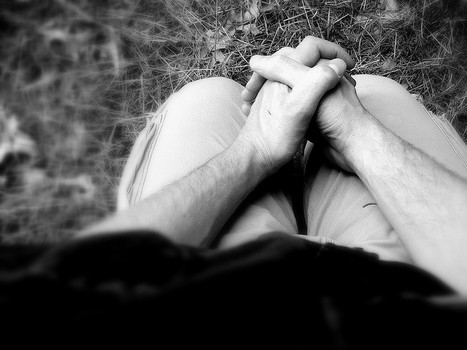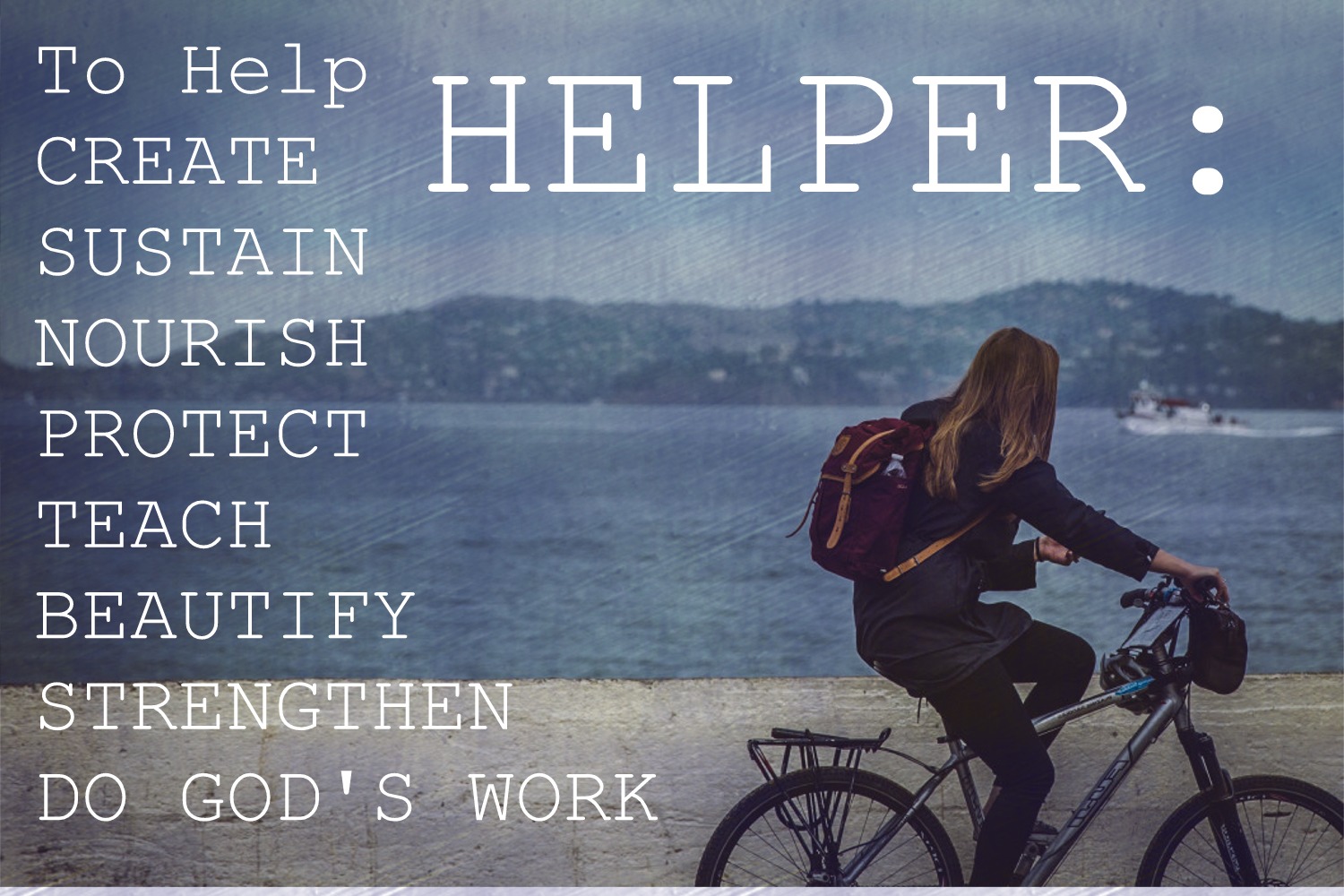
For the month of July, we are taking a pause from our study of the book of Judges and spending time in Ruth. After 15 weeks of disturbing stories with disturbing characters, we get to spend four weeks in a short love story. But this is not your typical love story about a knight in shining armor finding a princess to save. It is that, but much more. In truth, the story pictures not only the salvation of a helpless widow, the the salvation of a helpless people. It is the amazing, and somewhat confounding, story about a faithful God loving an unfaithful people, and rescuing them from their sin.
But the first thing the author of this story wants to establish is just how HELPLESS we in fact all are. The theme of Judges, which is the setting for this story, is that “without a King…men did what was right in their own eyes.” In other words, the problem with the hearts of men (and women) is that they think they try to be LORD of their own lives, wrongly believing they are wise, strong, and invincible–anything but weak and in need of rescue.
The first chapter, therefore, is dark and depressing glimpse into just how desperately broken we are. The story follows the tragic experiences of one family who lose everything and have nothing. Each of these people respond to their pain differently, moving all of us to consider how we might respond when, not if, tragedy strikes us:
One AVOIDS their pain, placing their HOPE in themselves.
We cannot avoid suffering–it is a certainty in life that plays out in a broken world. Blind devotion to avoid suffering, or get “out” of whatever difficult circumstance we find ourselves in, can easily lead to trusting the wrong savior. If we fail to draw near to God in the middle of a trial, we will be tempted to compromise what God has said, put on the savior cap, and work to save ourselves. Some asked why I was so “hard” to Elimelech who appears to doing his best to “save” his family–I would agree…he is doing his sinful best. Let’s not forget that this is the time of the Judges–where men are unfaithful and self-reliant. In other words, he does what is “right in his own eyes” not what is in fact RIGHT in the eyes of God. The text makes it clear that he does not engage with God before he makes his decision. And his decision is in fact contrary to what God has already said about life in land of Canaan. No one in Israel is to leave when things get bad–they are supposed to repent and live in the land faithfully. If there is any uncertainty, Elimelech’s intentions are made doubly-clear when his sons marry two pagan women, something God had told them not to do (Even if they are not directly listed in Deut. 7, Moabites are banned from entering the assembly of God in Deut 23; Neh 1). They did what they thought was “right” too.
One RUNS from their pain, placing their HOPE in others gods.
We cannot run from suffering, though most people try. This is the most common and natural response to pain. Even though this is the ordinary human response, that fact doesn’t make it right. Even though the running FROM might be understandable, the running TO is unjustifiable. Sympathetic toward Orpah’s situation, some argue that Orpah is simply doing what she can to survive. Let us not forget, she is doing more than just making a pragmatic decision. By marriage, she choose to become a part of Naomi’s family–now and forever. In leaving, she is abandoning all of that. When Naomi speaks with Ruth in verse 15, she indicates that Orpah has come home to “her people AND to her gods.” The opposite is also true. She has turned her back on God’s people and the one true God, Yahweh. Instead of setting up a future with God, she is pursuing a future apart from God. This is the most common response for those who experience something devastating without a genuine relationship with God. They look for a new god and a new community that is not Jesus and not the church. In their search for “freedom” from the pain, or distraction from the loss, these people begin to worship (i.e. sacrifice for, spend time with, find meaning, hope and joy in, etc.) a substance, a lifestyle, a person, a job, a hobby, or any number of things.
One SITS in their pain, placing their HOPE in nothing more than self-pity.
For one character, the hardship completely paralyzes them. They maintain a bitter existence whereby God is an enemy and not a friend. Their anger controls them, they experience all of life through a filter of disillusionment. They are governed by God’s “failure” to meet their expectations (even reasonable ones) and blinded to God’s graces in front of them. They have forgotten that the story is not about them and that what they can see is not the only reality. Make no mistake, this is not the same as mourning. There is a time for sorrow–it is important an necessary to grieve. This process can be very long, lonely, and emotional. The only thing that will bring someone through a season of mourning, that will protect them from the paralysis of bitterness, is God and His people–often God THROUGH His people. In other words, a certain HOPE in the God of the Bible who is strong, good and faithful ensures that the time for mourning will come to an end.
One PRESSES into their pain, placing their HOPE in the one true God and His People.
Then there is the last character, Ruth. Ruth experiences the same suffering, but she responds completely differently. She does not try to control, she does not run, she does not remain bitter, she in fact walks deeper into suffering. We have to believe that she is just as devastated as Naomi–though she is not as vocal. And yet, she commits to follow a bitter woman into a situation that will probably make things worse for her. She is going with no husband, no family, no job, and little hope as a Moabite within an Israelite nation. Her journey begins with zero guarantees and the only expectations that she will be with Naomi, worship God, and probably die. Some asked me why I didn’t focus more on Ruth’s powerful statement of commitment to Naomi. I don’t know. I guess I wanted to focus more on what she is actually doing, not just saying. In essence, her statement declares her utter HELPLESSNESS. But her actions declare her HOPEFULNESS.




